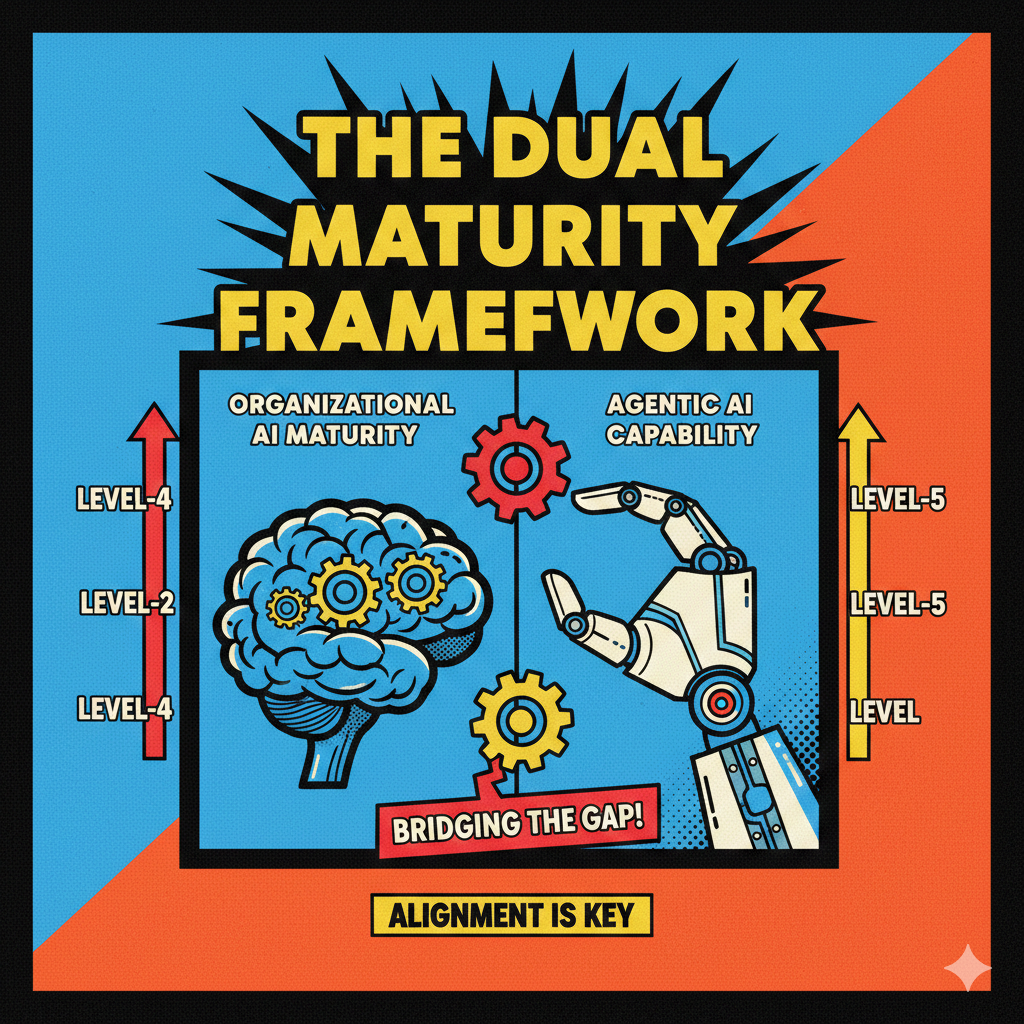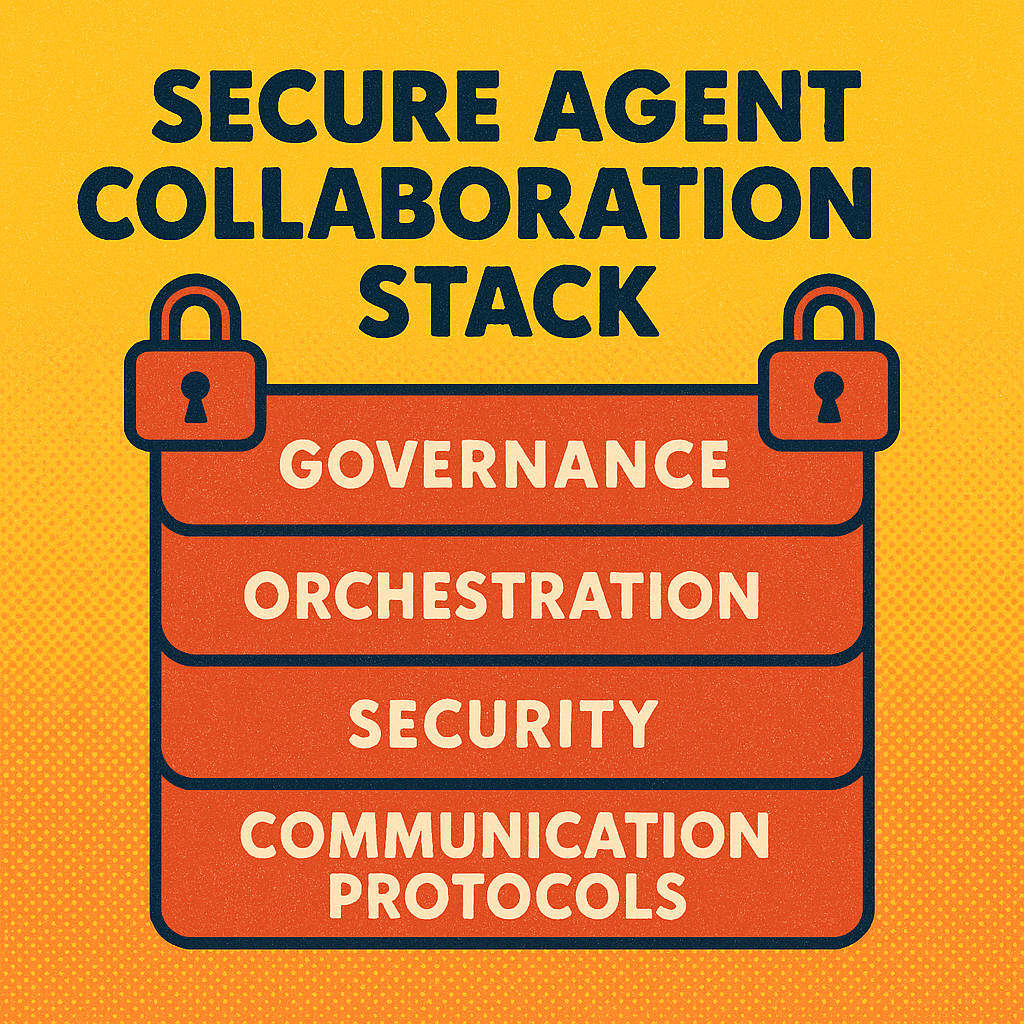
The Dual Maturity Framework: Bridging the Gap Between Organizational Readiness and AI Autonomy
The conversation around enterprise AI has shifted. For several years, the focus was on generative AI: systems that could summarize documents, draft emails, write code, and answer questions when prompted. These tools delivered real value, but they shared a common limitation. They waited for a human to ask before they did anything. The emerging generation of agentic AI changes that equation entirely. Agentic systems do not just answer; they execute. They plan multi-step workflows, make decisions within defined parameters, coordinate with other systems, and carry out complex tasks with minimal or no human intervention.

Resilience, Security & Real-Time Collaboration: Building the Foundation for the Agentic Enterprise
Spotlight on the challenges and innovations in secure, low-latency, and scalable coordination architectures, especially when agents cross organizational boundaries.
The modern enterprise no longer operates within tidy boundaries. Instead, it exists as a node in a dynamic digital ecosystem where agents (both human and AI) must collaborate across organizations, geographies, and technical platforms. This isn't the collaborative work environment of the past decade. We're entering an era where digital teammates work alongside human ones, where AI agents make autonomous decisions in milliseconds, and where the coordination fabric must span not just internal teams and organizational silos, but entire supply chains and partner networks.

Part One: “Build vs. Buy vs. Partner: Strategic Decisions for Agentic AI Capabilities”
Enterprise technology is evolving as organizations move beyond viewing artificial intelligence as merely a collection of tools and begin embracing it as a source of autonomous digital teammates. This transformation is more than just technological evolution, it’s a strategic imperative that is reshaping how businesses think about automation, decision-making, and competitive advantage.
Agentic AI systems differ from the AI assistants and automation tools that preceded them. Where traditional AI might help you analyze data or automate repetitive tasks, agentic AI can reason through complex scenarios, make decisions within defined parameters, and take actions on behalf of the organization. These systems can manage customer inquiries from start to resolution, orchestrate complex business processes across multiple systems, and even generate new insights that drive strategic decisions.

The Digital Workforce Revolution Is Here: What 442 Business Leaders Just Revealed About Agentic AI
The business world is undergoing a transformation that most organizations are still struggling to understand. While everyone talks about artificial intelligence, a new category of AI systems, agentic AI, is quietly reshaping how work gets done. These aren't just tools that require constant human direction. They're digital workers capable of autonomous action, complex reasoning, and goal-directed behavior.
After eighteen months of research, interviews with leading practitioners, and extensive analysis of implementation approaches, I'm excited to announce my upcoming book: "Building the Digital Workforce: Strategies for Agentic AI Success." More importantly, I want to share some surprising findings from our comprehensive survey of 442 business leaders that challenge everything we thought we knew about Agentic AI adoption in the enterprise.

The Agentic Advantage: How AI Agents Create Sustainable Competitive Moats
Business is undergoing a profound transformation from a rapidly evolving set of AI technologies. While most companies are still grappling with basic AI implementation, using large language models and generative AI for content generation or basic automation, a new paradigm has emerged that promises to reshape business competitive dynamics. This paradigm centers on agentic AI: autonomous, goal-oriented systems that don't just respond to prompts but actively pursue objectives, learn from their environment, and adapt their behavior over time.
Think of the difference between a calculator and a financial advisor. A calculator performs specific computations when asked, much like today's assistive AI tools. A financial advisor, however, maintains context about your situation, proactively identifies opportunities, adjusts strategies based on market changes, and builds expertise through accumulated experience. This is the leap from traditional AI to generative AI to agentic AI, from reactive tools to proactive digital teammates.

The Skills Revolution: Preparing Your Workforce for Human-Agent Collaboration
Agentic AI, and its potential to create a digital workforce, is reshaping the nature of work itself. Unlike previous waves of automation that primarily replaced manual tasks, autonomous AI agents can collaborate with humans on complex cognitive work ranging from strategic planning and creative problem-solving to relationship management and decision-making. As companies move to the hybrid workforce, we need a complete rethinking of workforce development, moving beyond traditional reskilling approaches to embrace new models of human-agent collaboration.
For business leaders, the question is not whether AI agents will transform their workforce, but how quickly they can prepare their people. Organizations that proactively develop human-agent collaboration capabilities will gain significant competitive advantages, while those that wait risk being left behind by more agile competitors.

From Tool to Team Member: How Specialized AI Agents Are Changing Organizational Structure
As specialized AI agents gain autonomy, domain expertise, and decision-making capabilities, they're forcing a rethinking of organizational structures that have remained largely unchanged for decades. What began as basic automation tools handling repetitive tasks has evolved into sophisticated AI systems capable of advanced decision-making support and complex reasoning. This evolution is more than just technological advancement, it’s a significant shift in how we conceptualize AI's role in the workplace.

The GTM Team and the Digital Workforce: Redefining Revenue Generation
The traditional Go-To-Market (GTM) team and models have been the backbone of revenue generation for businesses of all sizes. Historically structured around distinct human-driven functions: marketing creates awareness, sales drives conversion, and customer success ensures retention. These teams operated in a largely analog world despite digital tools supporting their work. For several reasons this model isn’t working correctly anymore. Customers mostly don’t buy the way sellers sell.
It’s time for a rethinking of this paradigm. Digital transformation has radically altered GTM dynamics, introducing new channels, dissolving boundaries between functions, and creating a mountain of customer data. The emergence of a digital workforce; intelligent systems powered by AI, automation, and digital agents, has potential to accelerate the transformation and to greatly improve outcomes.
